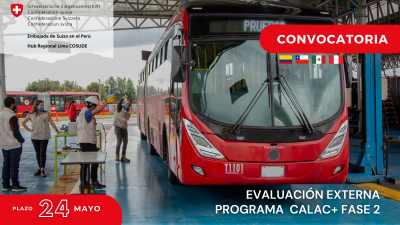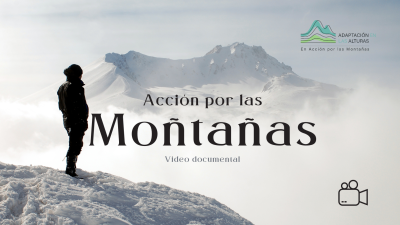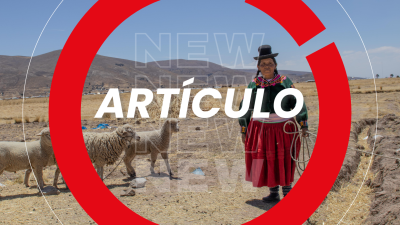The session “Building a water culture (SDG 6)”, was held during the 21st. International Symposium on Sustainable Entrepreneurship and Management in order for different actors to analyze what their relation with sustainable development is, and how they can contribute to building of a water culture and bridging the gaps addressed by the OECD.
Organized by 2030 Water Resources Group, The Coca-Cola Company and Arca Continental – Lindley Corporation, this event gathered renowned specialists in the field: Mercedes Castro, General Director, Agualimpia; Ezequiel Fernández-Sasso, Country Manager Peru, The Coca-Cola Company; José Borda Noriega, Chief Executive Officer, Arca Continental-Lindley Corporation; and Cesarina Quintana, Senior National Program Officer, Swiss Agency for Development and Cooperation (SDC). This panel was moderated by Antonio Bernales, Executive Director and Lead Consultant of Futuro Sostenible.
The session started with a keynote speech given by Gonzálo Delacámara, member of the OECD Water Governance Initiative and international advisor for 2030 Water Resources Group (2030WRG), which was the starting point for the discussion held by the multidisciplinary panel.
Mr. Delacámara pointed out that water is, at the same time, a limiting factor and an opportunity to attain social and economic development. “The problem is not about not having water and sanitation services, but about the fact that the conditions in which these services are offered are not optimal, especially in rural areas. The gaps are still big”, he pointed out.
He asserted that it is important to create the right incentives in order to generate the necessary infrastructure to keep natural sources working and to take care of them, “to protect watersheds” and bet on the future. “Alliances between the public and the private sector must be strengthened to achieve an inclusive model. Our challenges are governance and the generation of alliances”, he highlighted.
Ezequiel Fernández-Sasso mentioned that “over 80% of what the company offers is “water”, and, if we do not have the capacity to guarantee and commit to the protection of this resource looking to the future, not only our business will be unsustainable, but also the communities where we operate, the agricultural sector that supplies the ingredients we need, will be limited.” “We are determined to give nature each drop of water used in our productive processes back, and we are doing it by aligning three strategies: to reduce the amount of water used (water footprint), to reuse water by way of wastewater treatment, and to replace 100% of the water used. Through programs and alliances, such as the reforestation of forests, we are constantly working towards efficiency.”
José Borda Noriega stated that “environmental management is one of the pillars of sustainability for us. We believe that the key point is water efficiency, taking care of the water that goes into our production processes with the help of technological innovation, which will enable us to reduce the amount of water we use.” He added that his plants have been granted LEED certifications for their efficient designs and environmental efficiency in water reduction and reuse. “In Peru, we have reduced water use by 40%, and for 2020, our goal is to increase that percentage by an additional 20%”, he said.
Cesarina Quintana stressed SDC’s commitment to advocating for SDG 6. She pointed out that SDC is working closely with the Peruvian Government in order to bridge the gap in the access to water and sanitation, but that such gap is still great in the rural sector, and that the responsibility lies not only with the government or its different levels, but with all citizens in general. “Coverage is about 69% in the rural sector, but when it comes to improved sanitation services, it’s a scarce 20%. So, if our goal is to join the OECD in the future, this percentage is alarming. Peru ranks second to last in Latin America, with the worst indicators for Water and Sanitation”, she asserted.
She also highlighted that there is an interest in mobilizing the investment in Water and Sanitation, but that the problem is management. “We are convinced that the most critical issue is building trust, working among sectors to create common indicators, join forces, optimize resources and implement decentralized solutions. “We need a social revolution founded on an alliance between the public and private sectors, which will enable the mobilization of efforts made by all sectors, each playing its own role, along with further fostering of the “Works for Taxes” mechanism”, she remarked.
Mercedes Castro focused on the need for the private sector to implement the concept of water footprint in its production processes in order to optimize water use across the production chain. She also announced that the projects to be included in the project portfolio of the Ministry of Housing, Construction and Sanitation have already been selected and will be implemented using the mechanism “Works for Taxes.” She then invited the entire private sector to participate. ”It is a very important challenge; it concerns the whole country, and country is each and every one of us.”
Perú 2021 led the organization of the 21st International Symposium of Sustainable Entrepreneurship and Management, carried out at the Westin Hotel in Lima on September 28 and 29. This symposium has become the longest-established event on sustainability in the country and has gathered leading companies, international organizations, academia, experts in sustainable development and representatives of the government.
It is worth noting that the Swiss Agency for Development and Cooperation (SDC) has been providing technical and financial support to the Peruvian government in water and sanitation initiatives, working alongside the Ministry of Development and Social Inclusion and the Ministry of Housing, Construction and Sanitation, in order to contribute to increasing the access to services, coverage and quality of water and basic sanitation services for less-favored rural areas in Peru, and to enrich global debate with the capitalization of the experience.
 |
| For photos of the event, click here. |
Useful links:
SABA+ Project, project data sheet, Swiss Embassy, Swiss Agency for Development and Cooperation (SDC)








